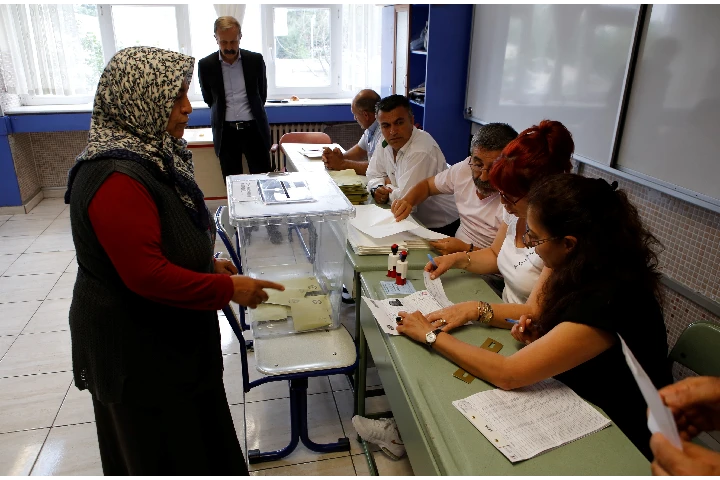

People cast their vote in Turkey (Photo: IANS)
The Turks are currently voting in an election which could go down as historic irrespective of the outcome. If President Recep Tayyip Erdogan wins, he will extend his 20-year rule and conversely, if he loses it will give a new direction to the country’s national and international politics.
Nearly 64.1 million voters are expected to cast their vote in a presidential and parliamentary election that has Erdogan facing his main rival Kemal Kilicdaroglu – leader of the Republican People’s Party (CHP) and presidential nominee representing six coalition partners.
Opinion polls indicate that Kilicdaroglu has a slight lead over Erdogan. However, if either of the candidates does not get a simple majority of 50 per cent, Turkey will witness a runoff election on May 28.
Turkey was in the news recently when it was hit by a devastating earthquake on February 06 that killed 50,000 and displaced more than 5.9 million. Many people believe that the exceptionally high death toll was due to poor building standards which had been relaxed by Erdogan’s regime and, an inadequate rescue effort to locate the dead and alive.
On the domestic front, the Turkish currency has collapsed and inflation has crossed 85 per cent.
People also feel that under Erdogan the country has witnessed decreasing freedoms, judicial controls, reduced women’s rights and erosion in equality. It was under Erdogan that the Hagia Sophia church, which was a museum, was converted to a mosque much to the chagrin of a liberal Europe.
In his defence Erdogan has said that the opposition parties are taking directions from the West. Opposition presidential candidate Kilicdaroglu hopes to restore domestic and foreign policy changes that Erdogan had brought about. He also wants to bring back the parliamentary system that has seen systematic withering under Erdogan and invite foreign investment.
Other election issues will be rising inflation as well as a critical look at Erdogan’s muscular foreign policy that seeks to fulfil his dream of reviving the glories of the Ottoman empire. President Erdogan has flexed his muscles against Greece and has dabbled in the Syrian crisis. He has also made strenuous efforts to be seen as a leader to a highly divided Muslim world.
The elections take place at a time when Europe is witnessing a major crisis due to the Russia-Ukraine war where Turkey as a NATO partner finds itself supplying munitions to Ukraine, facing a ‘crisis of living’ issue and high unemployment.
Union Minister for Communications Jyotiraditya Scindia chaired a key meeting with the Bharat 6G Alliance…
Japanese Ambassador in Kabul, Takayoshi Kuromaya, has called on the Taliban government in Afghanistan to…
The Digital India Foundation (DIF), a founding member of the AI Alliance Network (AIANET), has…
Current bullion market is focusing on a combination of factors which includes direction of US…
National Security Advisor Ajit Doval on Friday slammed foreign media for their reportage of Operation…
The Bharat Utsav, a festival celebrating India's rich culture, heritage, and tradition, has begun in…